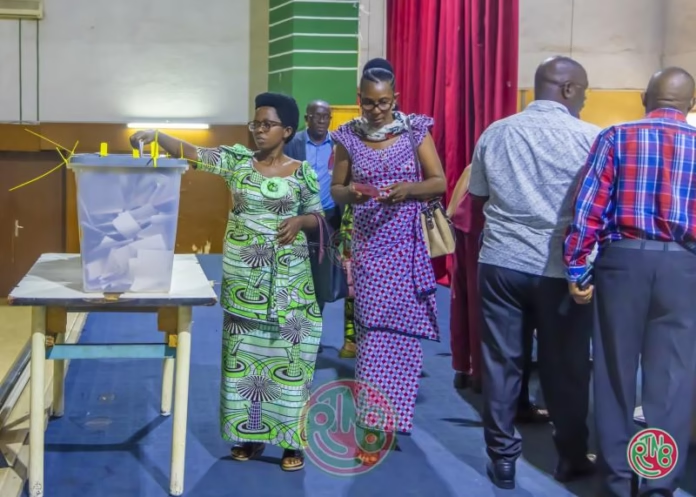BUJUMBURA, July 27, 2025 — Burundi’s ruling party, the National Council for the Defense of Democracy–Forces for the Defense of Democracy (CNDD‑FDD), has won all contested Senate seats in the official indirect elections held on July 23, 2025, solidifying its political dominance across all five provinces. The results are now pending validation by the Constitutional Court.
Official Results
According to the Independent National Electoral Commission (CENI), the CNDD‑FDD captured all 10 directly elected Senate seats. Three additional seats for Batwa community representatives were subsequently co-opted, bringing the Senate to a total of 13 members. Voter turnout among municipal councillors was nearly universal: 1,053 out of 1,054 participated, equating to 99.91% turnout. The ruling party received 99.72% of Hutu votes and 99.62% of Tutsi votes.
Provincial Breakdown
- Bujumbura: 277 councilors voted—270 in person and 7 by proxy—with 100% of votes going to CNDD‑FDD.
- Buhumuza: 174 out of 175 councilors voted; both senatorial seats went to the ruling party.
- Butanyerera: Full participation with 201 voters; CNDD‑FDD won all valid ballots: 200 votes on the Hutu list (one invalid) and unanimous support for the Tutsi list.
- Gitega: Of 225 voters, CNDD‑FDD secured 221 votes on the Tutsi list and 223 on the Hutu list; opposition parties collectively received just one vote each on respective lists, alongside one abstention and one invalid ballot.
- Burunga: All 176 councilors cast votes in favor of CNDD‑FDD for both ethnic lists. Officials had publicly displayed empty ballot boxes prior to voting, in an effort to enhance procedural transparency.
Opposition Reactions
The Congrès National pour la Liberté (CNL), formerly the primary opposition party, sharply criticized the process as a “non‑event,” asserting that the process represented a deliberate dismantling of political pluralism in the country
Meanwhile, Union pour le Progrès National (UPRONA), a historic party in Burundi’s independence era, rejected the legitimacy of the results. Olivier Nkurunziza, UPRONA’s secretary-general, stated that “we have killed democracy” and denounced the vote as rigged during the June 2025 legislative elections—a context mirrored in the senatorial process. Other party officials also criticized the African Union for endorsing the elections as credible, calling into question the electoral oversight and fairness.
Implications
Under Burundi’s constitutional and electoral framework, Senate seats are allocated by ethnic and gender quotas—ensuring equal representation of Hutu and Tutsi, and at least 30% representation for women. This time, women make up 50% of the senators. Even so, the distribution overwhelmingly favors CNDD‑FDD, granting it full formal control over the Senate for the 2025–2030 term.
With elections at all levels—local, legislative, and senatorial—now firmly in CNDD‑FDD’s hands, opposition parties warn that democratic space is rapidly shrinking. The results await final approval by the Constitutional Court.



